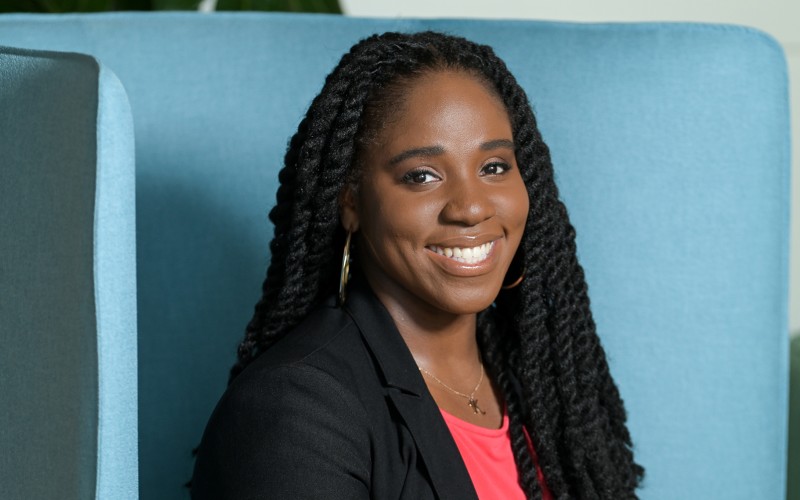Primary tabs

Kerri Lee Alexander has joined Cornell Human Ecology as its inaugural director of social impact and justice. In this role, Alexander will develop and lead a college-wide strategy aimed at creating, advocating for, and sustaining a diverse community of faculty, staff and students with a climate of belonging and inclusion. This new position supports the college’s priority, laid out in the strategic Vision 2030, of building a flourishing Human Ecology community.
Alexander comes to Cornell from Xavier University of Louisiana in New Orleans, where she served as the assistant vice president for student affairs, chief inclusion officer and deputy Title IX Coordinator since 2021.
She brings a wealth of experience and leadership in diversity, equity and belonging. At Xavier, she was responsible for fostering a community of care through the development and implementation of equitable policies, pedagogy and programs that advanced the university’s mission of promoting a more just and humane society. Alexander and her team started the university’s first Alternative Breaks Program – which takes students off campus to engage with the global community – and launched new LGBTQ+ programming.
Alexander is completing her doctorate in U.S. history from Howard University. She has a master’s degree in theological studies from Princeton Theological Seminary and a bachelor of science in arts administration and nonprofit management from Wagner College.
As she stepped into the role, Alexander shared what drives her work and why she chose to join the Cornell Human Ecology community.
What drew you to this new role?
Cornell is a vibrant institution with world-class students, faculty, staff and alumni. Shaped by a beautiful founding principle that centers inclusivity and academic inquiry, this environment truly embodies the notion that “any person can find instruction in any study.” The College of Human Ecology in particular stood out as an interdisciplinary hub for thoughtful problem solving and the development of life-changing solutions to society’s most pressing challenges. I was thrilled that there was an opportunity to contribute to such a dynamic college as we collectively seek to enrich our community, expand our intellectual pursuits and empower the next generation of leaders.
Is there anything that you’re especially looking forward to? What excites you most?
I am excited that this is an inaugural role, so there is no distinct path forged ahead of me. Although it can be a daunting task, the possibilities are endless! In the innovative and interdisciplinary spirit of human ecology, I am excited to collaborate with the Cornell community and beyond to create new opportunities for meaningful connection, deeper levels of empathy, and a greater understanding of our fellow human beings. Additionally, I look forward to developing structures to support the mission-aligned work of belonging at the college and institutional levels.
How does your research inform your work?
Although I am a historian by discipline, I consider myself to be an honorary human ecologist, as I have always been fascinated by the complexities of human life. My research is on the systemic separation of enslaved families in the 19th century and the behavioral responses exhibited by the enslaved population in response to this trauma. Many behavioral patterns that have far too often been dismissed by scholars as “pathology” or “predisposition” can be understood as intricate manifestations of grief and linked to experiences of dislocation, displacement and severed kinship. This is why community and belonging are central to my work, both with individuals and with the systems they inhabit.
What do you wish people knew about the work you do?
As simple as it may sound, I wish people knew how interconnected we are. The wellbeing and vitality of the whole is dependent upon all of the individuals. Therefore, my work can be considered an extension of our responsibility as a society. Marginalized, vulnerable and underserved populations deserve our collective care and attention so that we may have a more robust and thriving community overall.